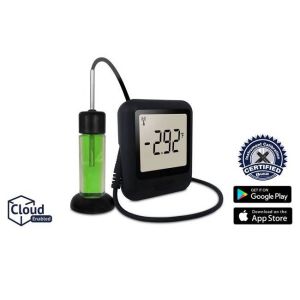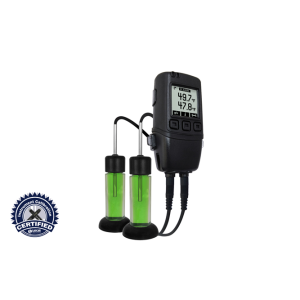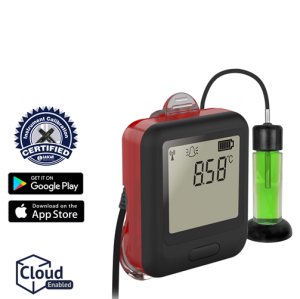USB and WiFi Vaccine Monitoring Kits
Data loggers are essential temperature monitoring devices for fridges and freezers storing vaccines. Lascar offers a range of vaccine monitoring kits that follow both CDC and NHS guidelines and that include a digital data logger, a glycol bottle probe and calibration certificate. Also available are the high-accuracy ultra-low temperature data logger for monitoring vaccines in cryogenic dry ice storage.
Excessive exposure to temperatures that are too hot or cold can result in vaccines losing their potency. Continued exposure degrades potency even further and unfortunately it cannot be restored and the vaccine must be destroyed.
The Center for Disease Control (CDC) recommends refrigerators storing vaccines MUST be kept between 2ºC and 8ºC (36ºF and 46ºF) and freezers storing vaccines between -50ºC and -15ºC (-58ºF and +5ºF) and recommends the use of a digital data logger to continuously measure temperature of vaccines in storage.
USB Vs WiFi - Which One Do I Choose?
USB
USB data loggers enjoy a long battery life (12+ months) with a user replaceable battery. Users are alerted to alarms by a flashing red LED on the device. An on-board display shows max, min and current log. Data is downloaded manually by connecting the device to the PC USB port. These loggers are the lowest cost vaccine solutions.
WiFi
WiFi data loggers allow remote access to all readings via any internet-enabled device with multiple loggers viewed at any one time or by using the EasyLog Cloud App for iOS and Android. The unit can be programmed to send instant email alarm notifications and an on-board display shows max, min, current log and whether the unit is in alarm. The units can run from batteries for up to 2 years (EL-MOTE) or can be powered by mains.
Why a Glycol Bottle?
A detachable probe in a bottle filled with a thermal buffer, such as glycol, is the closest reflection of an actual vaccine. Vaccine temperatures are more stable than air temperature, as the air fluctuates when the door is opened. Suspending a probe in a sealed glycol bottle helps to prevent the change in air temperature from throwing the readings off, consequently mimicking the rate at which vaccines react to changes in temperature, giving users the most accurate readings.



